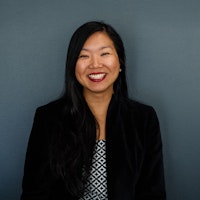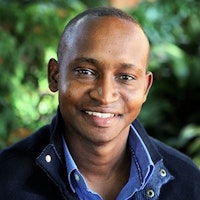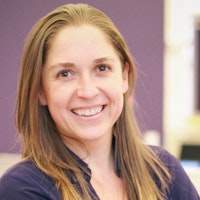The Game Changers
The next generation of leaders thinks globally, unencumbered by borders and refuses to sit idly when there are problems to be solved.
 The Next Generation Game Changers panel at the Bush Center's Forum on Leadership, April 19, 2018. (Paul Morse / George W. Bush Presidential Center)
The Next Generation Game Changers panel at the Bush Center's Forum on Leadership, April 19, 2018. (Paul Morse / George W. Bush Presidential Center)
The ritual shift in generational leadership is creating one of the most forceful disruptions across the world. Millennials, who essentially were born between 1980 and 1996, will surpass Baby Boomers as the nation’s largest living adult generation in 2019. And the Generation X cohort, whose members were born between 1965 and 1982, will surpass Boomers in population by 2028.
The George W. Bush Presidential Center’s recent Forum on Leadership explored this pivotal change with a panel devoted to “next generation game changers.” The Catalyst asked the panelists to elaborate on this question:
Each of you came into your field with a new idea and upended the status quo. Please explain how disruption is changing the game in your area of expertise – and how the rest of us should respond to that change.
 Diana Mao on stage at the Bush Center's Forum on Leadership, April 19, 2018. (Paul Morse / George W. Bush Presidential Center)
Diana Mao on stage at the Bush Center's Forum on Leadership, April 19, 2018. (Paul Morse / George W. Bush Presidential Center)

Diana Mao
President and Co-founder, Nomi Network; Presidential Leadership Scholars ‘15
“The disruptions we are making in India are causing women to have enough money to open their own bank accounts and send their children to school, essentially decreasing the need for trafficking in areas where various forms of violence against women run rampant.”
Read full article
 James “Kassaga” Arinaitwe on stage at the Bush Center's Forum on Leadership, April 19, 2018. (Paul Morse / George W. Bush Presidential Center)
James “Kassaga” Arinaitwe on stage at the Bush Center's Forum on Leadership, April 19, 2018. (Paul Morse / George W. Bush Presidential Center)
 James “Kassaga” Arinaitwe
James “Kassaga” Arinaitwe
CEO and Co-founder, Teach For Uganda
“The government assigns us a very poor district with high dropout rates and trusts us to improve the learning outcomes in the worst of the worst.”
Read full article
 Barbara Bush (left) and Daniela Terminel (right) on stage at the Bush Center's Forum on Leadership, April 19, 2018. (Paul Morse / George W. Bush Presidential Center)
Barbara Bush (left) and Daniela Terminel (right) on stage at the Bush Center's Forum on Leadership, April 19, 2018. (Paul Morse / George W. Bush Presidential Center)
 Daniela Terminel
Daniela Terminel
CEO, Global Health Corps
“We look at whether fellows have the hard skills to fill the position that our partners on the ground need. But we also look at their leadership potential. We are trying to build the next generation of health leaders.”
Read full article
-
Previous Article The Disruptive Power of Veterans An Essay by Colonel Miguel Howe, April and Jay Graham Fellow of the Military Service Initiative at the George W. Bush Institute
-
Next Article Why Conservatism Should Lead with a Heart A Conversation with Arthur Brooks, President of the American Enterprise Institute
